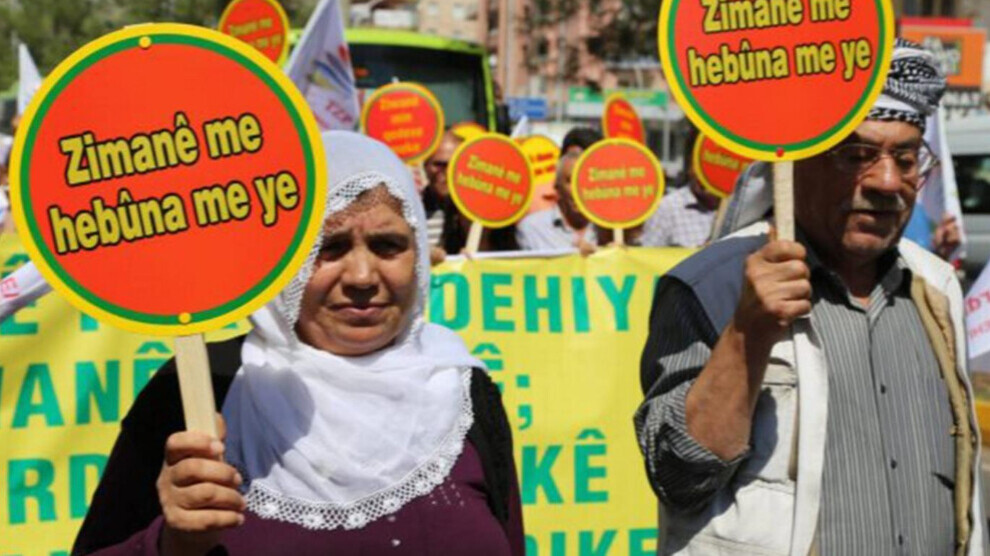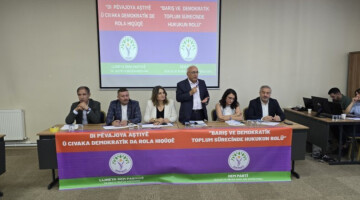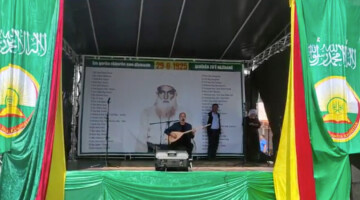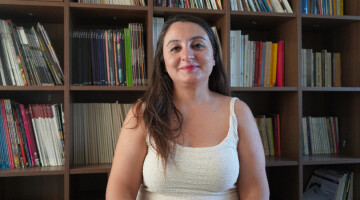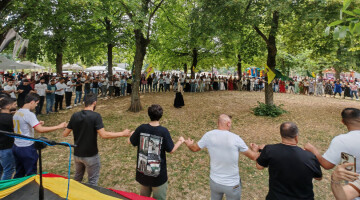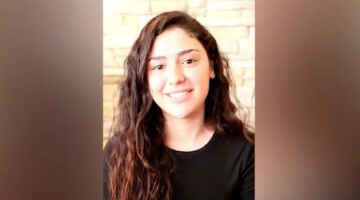15 May has been celebrated as Kurdish Language Day since 2006. The date dates back to the first publication of Hawar magazine in 1932. Published in Damascus, the magazine is considered the school of Kurdish publishing and it played an important role in the history of the Kurdish language.
In a statement marking the Kurdish Language Day on 15 May, the Education Committee of the KCK (Kurdistan Communities Union) stated that mother-tongue education is a legitimate and indispensable right.
On this occasion, the KCK remembered Abdullah Öcalan "who carried the hope of freedom of our people into the struggle and did not recognise any obstacles to this cause, our martyrs who became immortal for the sake of the existence, language, values and freedom of their people, and our resistant people who did not give up their language and did not kneel down despite all bans, oppression and deaths".
The statement of the KCK Education Committee includes the following:
"Language is the common memory of society. The protection and development of society's memory is directly linked to the protection and development of the mother tongue. The practice where denial meets genocide is the banning of language. Calling the Kurdish language forbidden, reprehensible, divisive, backward and primitive is essentially a policy of annihilating Kurdish existence. The greatest destruction a society can suffer is undoubtedly not being able to speak in its own language, forgetting its language and gradually moving away from it. A society that forgets its language inevitably forgets its culture, its history, its identity and, finally, its memory. This is the very essence of the systematic social annihilation practised by the nation-state mindset.
Due to the monist nation-state policies pursued in many parts of the world since the beginning of the 20th century, many countries have become graveyards of languages. Anti-democratic nation-states have made monolingual education compulsory in all areas of life through policies of criminalising language and culture.
While the language revolution led by Kurdish women in Kurdistan tens of thousands of years ago was a breakthrough in the development of humanity, today, in the same countries, our people are forbidden to read, write and do politics in their own language and Kurdish is treated as an 'unknown language'.
Although the prevention of education in the mother tongue, which is a fundamental universal right, is defined as cultural genocide in the United Nations and European Union conventions, the Turkish, Persian and Arab nation states have denied the Kurdish language and culture and deprived our people of all opportunities and possibilities of education in the mother tongue.
The colonialist Turkish state, which develops its language policy on the axis of nation-state politics, insults our people by considering Kurdish as an elective course for Kurdish children. All Kurds should be aware that reducing Kurdish to the status of an elective course is nothing but an insult. A person's mother tongue cannot be considered an elective; an elective is a second language that is not the mother tongue. Saying yes to such a practice is tantamount to walking out of the struggle. What needs to be done against this is to demand and assert the right to education in the mother tongue as a legitimate fundamental right through continuous mobilization in all spheres of life.
It is a fact that the Kurdish people have never compromised in the defence of their language, culture and existence, even in the genocidal attacks perpetrated against them by nation states. Even outside Kurdistan, which was divided into four parts, it has preserved and spread its existence, language and culture in many countries of the world.
From now on, our people should fight vigorously to guarantee the teaching of their mother tongue wherever they are, both in Turkey and abroad, and to remove the obstacles to the use of their mother tongue in the public sphere. One must not give in to assimilation policies that force linguistic homogenisation, but must fight daily against self-assimilation by speaking, writing and thinking in Kurdish.
Against this background, Kurdish Language Day is a day to create awareness against the policy of assimilation, to resist the policy of annihilation and to create a social memory against the understanding of memory loss. In this sense, the Kurdish language is the Xwebûn (Self) reality of the Kurdish people.
We must not forget that we are in the most fertile historical moment as well as in the most colourful historical space. In this place where countless different identities, communities, languages, religions and ethnicities intersect, the coexistence and expression of all differences will be the most meaningful celebration for our peoples. The revolution of Rojava is this holiday itself. Happily, the Rojava Revolution is leading the quest of all languages and voices to live freely in their mother tongue as a true cultural revolution.
On the 91st anniversary of the publication of Hawar magazine, we once again celebrate 15 May Kurdish Language Day, saluting the Kurdish people who never bowed to the policies of assimilation and denial, those who have kept the Kurdish language alive and improved it at a heavy price, as well as Celadet Ali Bedirxan and his companions.”

